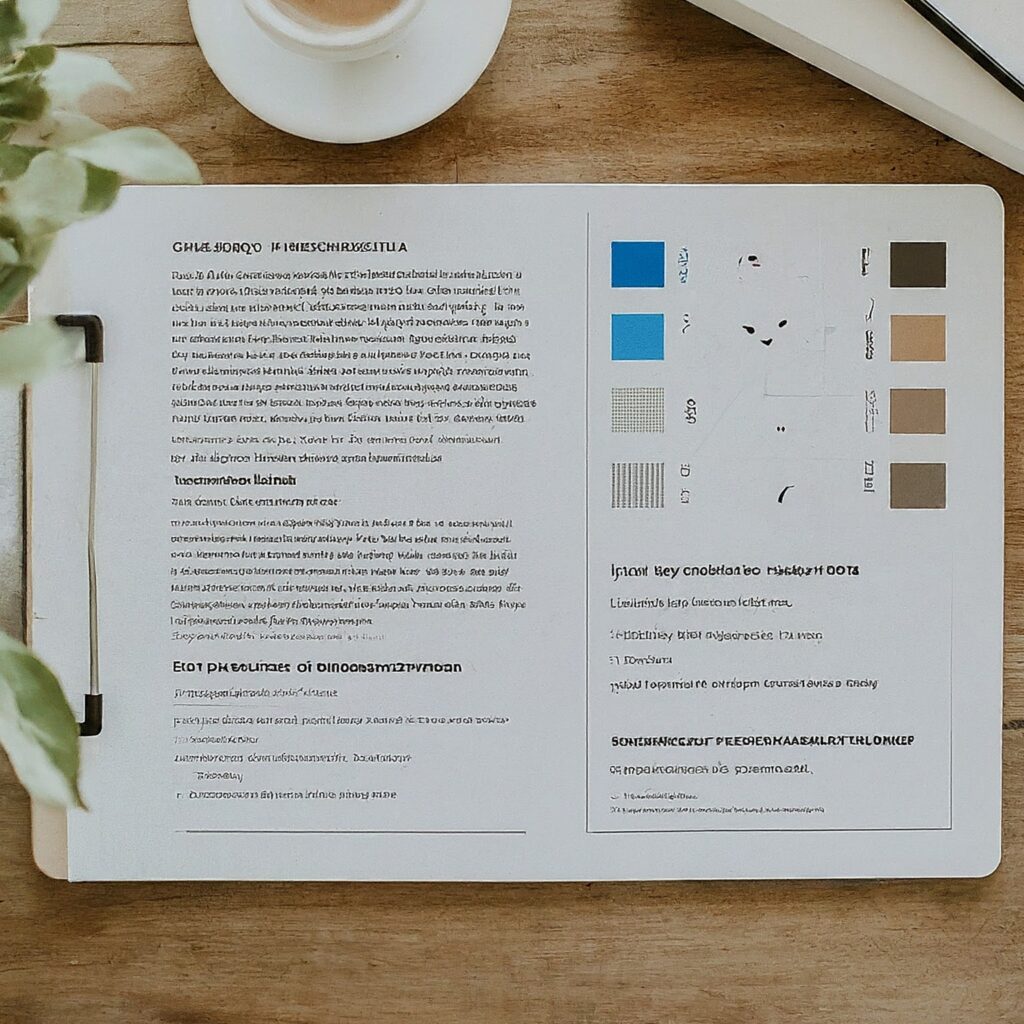Introduction
In today’s digital age, having an appealing and user-friendly website is crucial for businesses in the hospitality industry in Stockport. This article will delve into the essentials of web design tailored specifically for restaurants, pubs, and hotels in Stockport. From captivating visuals to seamless navigation, we’ll explore how to create websites that not only attract but also retain potential customers.
Understanding Your Audience
Identifying Target Demographics
Understanding the demographics of your target audience is essential for tailoring your website design and content to their preferences and needs. Are you targeting families, couples, or business travelers? Understanding these demographics will guide your design choices.
Analyzing User Behavior
Analyzing user behavior through tools like Google Analytics can provide valuable insights into how visitors interact with your website. This data can help you identify areas for improvement and optimize the user experience.
Designing a Captivating Homepage
Utilizing High-Quality Imagery
The homepage is the first impression visitors will have of your establishment. Utilize high-quality images of your restaurant, pub, or hotel to showcase its ambiance and offerings effectively.
Clear and Concise Branding
Ensure your branding elements such as logo, colors, and fonts are consistent throughout the website. Clear branding helps establish trust and recognition among visitors.
Interactive Features for Engagement
Incorporate interactive elements such as sliders, videos, or virtual tours to engage visitors and encourage them to explore further.
Optimizing for Local Search
Incorporating Local Keywords
Optimize your website content with relevant local keywords such as “best restaurants in Stockport” to improve visibility in local search results.
Creating Location-Specific Landing Pages
Create dedicated landing pages for each location or neighborhood you serve. Include information about nearby attractions, directions, and contact details to make it easy for potential customers to find you.
Leveraging Google My Business
Claim and optimize your Google My Business listing to ensure accurate information appears in local search results. Encourage satisfied customers to leave reviews to further boost your visibility.
Mobile Responsiveness
Importance of Mobile-Friendly Design
With an increasing number of users accessing the internet on mobile devices, it’s crucial to ensure your website is mobile-friendly. Responsive design ensures your site looks and functions seamlessly across all devices.
Responsive Layouts and Navigation
Optimize your website layout and navigation for smaller screens to provide a smooth user experience on mobile devices. Keep menus and buttons easily clickable, and minimize the need for horizontal scrolling.
Testing Across Multiple Devices
Regularly test your website across various devices and screen sizes to identify any issues and ensure consistent performance.
Streamlining the Booking Process
User-Friendly Reservation Forms
Simplify the booking process by providing a user-friendly reservation form directly on your website. Collect only essential information to minimize friction and increase conversions.
Integration with Booking Platforms
Integrate your website with popular booking platforms such as OpenTable or Booking.com to streamline the reservation process for customers.
Clear Call-to-Action Buttons
Place clear and prominent call-to-action buttons throughout your website, prompting visitors to book a table, make a reservation, or inquire about availability.
Showcasing Menus and Services
Visual Menu Displays
Display your menus and services visually with high-quality images and descriptions. Make it easy for visitors to browse and find information about your offerings.
Detailed Service Descriptions
Provide detailed descriptions of your services, including information about ingredients, pricing, and any special dietary options. Transparency builds trust and helps customers make informed decisions.
Integration with Online Ordering Systems
If applicable, integrate your website with online ordering systems to offer delivery or takeaway options. Make it convenient for customers to order directly from your website.
Highlighting Customer Testimonials
Importance of Social Proof
Customer testimonials and reviews provide valuable social proof that can influence potential customers’ decision-making process. Display genuine testimonials prominently on your website to build trust.
Displaying Authentic Customer Reviews
Encourage satisfied customers to leave reviews on platforms like Google, Yelp, or TripAdvisor, and showcase these reviews on your website. Authenticity is key to building credibility with visitors.
Utilizing Testimonial Widgets
Use testimonial widgets or plugins to dynamically display rotating testimonials throughout your website. This adds credibility and reinforces positive impressions of your business.
Emphasizing Unique Selling Points
Identifying Key Differentiators
Highlight your restaurant, pub, or hotel’s unique selling points that set you apart from competitors. Whether it’s a signature dish, specialty cocktail, or exclusive amenities, emphasize what makes your establishment special.
Highlighting Special Offers and Promotions
Prominently feature special offers, promotions, and discounts on your website to incentivize visitors to choose your business. Limited-time deals create a sense of urgency and encourage immediate action.
Creating Compelling Value Propositions
Craft compelling value propositions that communicate the benefits of choosing your establishment. Whether it’s exceptional service, a cozy ambiance, or unbeatable value, clearly articulate what customers can expect when they visit.
Ensuring Website Security
SSL Certificates for Data Encryption
Protect your customers’ sensitive information by installing an SSL certificate on your website. SSL encryption ensures that data transmitted between your website and visitors’ browsers remains secure.
Secure Payment Gateways
If you accept online payments, ensure your website integrates with secure payment gateways that comply with PCI DSS standards. Offer multiple payment options to accommodate different preferences.
Regular Security Audits and Updates
Schedule regular security audits and updates to identify and patch vulnerabilities in your website’s code. Stay proactive in protecting your website and customers’ data from cyber threats.
Measuring Success with Analytics
Setting Key Performance Indicators (KPIs)
Define key performance indicators (KPIs) such as website traffic, conversion rates, and online bookings to track the success of your website. Set realistic goals and benchmarks to measure progress over time.
Utilizing Google Analytics
Utilize Google Analytics to gather valuable insights into your website’s performance, user behavior, and traffic sources. Analyze data regularly to identify areas for improvement and optimization.
Continuous Monitoring and Optimization
Monitor your website’s performance closely and make data-driven adjustments to optimize conversion rates and user experience. Regularly test new strategies and features to stay ahead of the competition.
Conclusion
Crafting an enticing website for your restaurant, pub, or hotel in Stockport is essential for attracting and retaining customers in today’s competitive market. By implementing the strategies outlined in this guide, you can create a captivating online presence that drives traffic, boosts conversions, and ultimately enhances your business’s success. When focusing on website design in Stockport, it’s crucial to tailor your online platform to the local market’s needs and preferences.
FAQs (Frequently Asked Questions)
- How important is it for my hospitality business in Stockport to have a website? Having a website is crucial in today’s digital landscape as it serves as your online storefront, allowing potential customers to find and learn more about your business.
- What are some common mistakes to avoid when designing a website for my restaurant or hotel? Common mistakes include cluttered layouts, slow loading times, and lack of mobile optimization. It’s important to prioritize user experience and simplicity in design.
- How can I ensure that my website ranks well on search engines like Google? Optimizing your website for local keywords, creating high-quality content, and obtaining backlinks from reputable sources can help improve your search engine rankings.
- Is it worth investing in professional web design services for my hospitality business? Investing in professional web design services can provide a significant return on investment by creating a visually appealing and functional website that attracts more customers.
- What role does social media play in promoting my restaurant, pub, or hotel online? Social media platforms like Facebook, Instagram, and Twitter can be valuable tools for promoting your business, engaging with customers, and driving traffic to your website.




